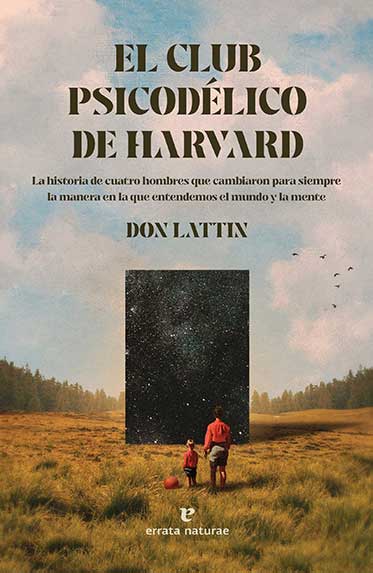There are a number of reference works –“How I discovered acid and what happened to the world next” Albert Hofmann o “Acid Dreams. Social history of LSD: the CIA, the 1960s and beyond. by Martin A. Lee are usually the most recurrent – which perfectly explain the cultural influence of psychoactive drugs and the unique fascination they exerted during the second half of the 20th century. Starting in the sixties, countercultural movements from the other end of the Atlantic advocated a new way of understanding the world and, with it, human relations. Each generation has its drug and, in a political context marked by the Cold War and the Vietnam War, the consumer society and the foundations of a new capitalism –more ferocious, more dehumanizing–, the psychedelic culture advocated experimentation and introspection as mechanisms for self-knowledge, both of others and of ourselves. Those were the golden days of lysergic acid diethylamide, better known as LSD.
Don Lattin proposes a work that allows to know the ins and outs of a research project with hallucinogenic substances monitored by three academics (Timothy Leary, Huston Smith, Richard Alpert) and a student (Andrew Weil) that not only changed their lives forever, but also it had an unfathomable influence on the culture of the 1960s and 1970s. “These four characters –says Lattin– were in charge of preparing the ground for the social, spiritual, sexual and psychological revolution that would break out in the sixties”. The place, the exceptional setting, was Harvard University (Massachusetts), where the four main protagonists of the book were lucky enough to coincide; Their personal and professional relationship not only cemented the pillars of the psychedelic era, but also allowed the perception of drugs to be redefined not as something sordid or dangerous, but as a unique opportunity to explore the limits of the human mind.
Having been able to adopt essay form and little else, “The Harvard Psychedelic Club” It must be understood as an exercise in narrative non-fiction in which even the dialogue itself has been reviewed by the original sources. That is why Lattin has managed to complete a work that is sustained and enjoyed for its solid historical contextualization, but also for duly delving into the lives of these four psychonauts, among which Timothy Leary stands out for having been the most media of all. they. He, who encouraged an entire generation to let go, made John Lennon explain in “Tomorrow Never Knows” (“Revolver”, 1966) his lysergic experience under the tutelage and company of the “magician” Leary.
“The Harvard Psychedelic Club” provides numerous data on the first experiments with LSD, and that take us back to the days of Albert Hofmann –its accidental discoverer– to the practice of extremely radical experiments for that time (in some, for example, they wanted to check if a very high exposure acid could create “a different class of humans”) that brought these four men to fame, but also to unpopularity due to clashes with institutions, both police and political. And, as in many other stories, here there is friendship, peace and love, but also the hidden reverse of envy, backstabbing, high treason.
Agile and extremely interesting reading –translated into Spanish by Inés Clavero– that provides a very complete breaking latest news on the rise of LSD and that, if it captivates from its first pages, is because of the profound human dimension of its protagonists.
